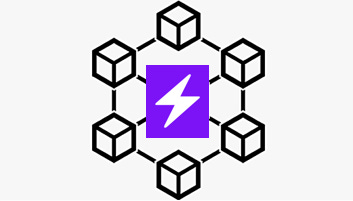Dear Readers,
Bitcoin has the ability to revolutionize finance around the world. Individuals and companies who transact in Bitcoin are not reliant on a bank, government, or other “trusted” third party to certify the value of the money being transferred or grant the user permission to access their wealth. Instead, Bitcoin users are able to transfer their wealth anywhere in the world at any time without needing to seek anyone’s approval and without any risk of the transaction being frozen or denied. As a result, Bitcoin is often referred to as equitable in the sense that all participants in the network are equal in power and privilege to everyone else.
Although Bitcoin has the ability to transfer large amounts of wealth relatively quickly, its blockchain is subject to certain limitations. For example, a block of transactions is confirmed on the blockchain on average every ten minutes. And until a transaction is confirmed, there is still a risk that the transferred Bitcoin might not arrive as expected. Additionally, Bitcoin’s software code only allows a certain amount of transactions to be included in each block. It’s estimated that the Bitcoin blockchain is capable of processing seven transactions per second on average, far less than the thousands of transactions occurring around the world every second.
As a result of the aforementioned limitations, Bitcoin transactions can at times become rather costly, especially when demand to use the blockchain is high. Critics of Bitcoin often throw Bitcoin’s limited transaction input around as a factor that would prohibit the cryptocurrency from ever becoming widely used or from becoming a global currency. While the base software code of Bitcoin as I’ve described is unlikely to change anytime soon, there are various technologies that are being developed to increase the scalability and usability of the Bitcoin blockchain. One of the most promising technologies is the Lightning Network.











